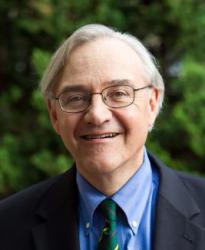

10:00 am EDT - 12:00 pm EDT
Past Event
10:00 am - 12:00 pm EDT
1775 Massachusetts Avenue, NW
Washington, DC
20036
Religious leaders have demonstrated a remarkable degree of unity across theological, denominational, and ideological lines for comprehensive immigration reform. Religious groups have organized marches, prayer vigils and postcard campaigns to pressure the U.S. Congress to take up immigration reform. Largely because of the activism of these religious groups, immigration has remained on a legislative agenda crowded with other pressing domestic concerns. Why are religious groups so united on the question of immigration reform? How has their activism affected the debate on Capitol Hill? And what does this tell us about the role of faith in affecting debates over policy and building political coalitions?
Brookings Senior Fellows E.J. Dionne and William Galston co-moderated a two-panel discussion to address these questions. Jim Wallis, president of Sojourners, gave opening remarks. The first panel focused on the role of religious leaders in building coalitions and affecting the debate. The second discussed the links among ethnicity, religiosity and partisanship.
*Dr. Robert P. Jones’s full topline questionnaire, state polling and focus group reports for Ohio and Arkansas, and press release for the main findings are available on Public Religion Research Institute’s website.



Scott R. Anderson
June 26, 2025

Stephanie K. Pell, Josie Stewart, Brooke Tanner
June 25, 2025

Gabriel R. Sanchez, Edward D. Vargas, Daniel F. López-Cevallos, Carmen R. Valdez, Ana Luisa Oaxaca Carrasco
June 24, 2025